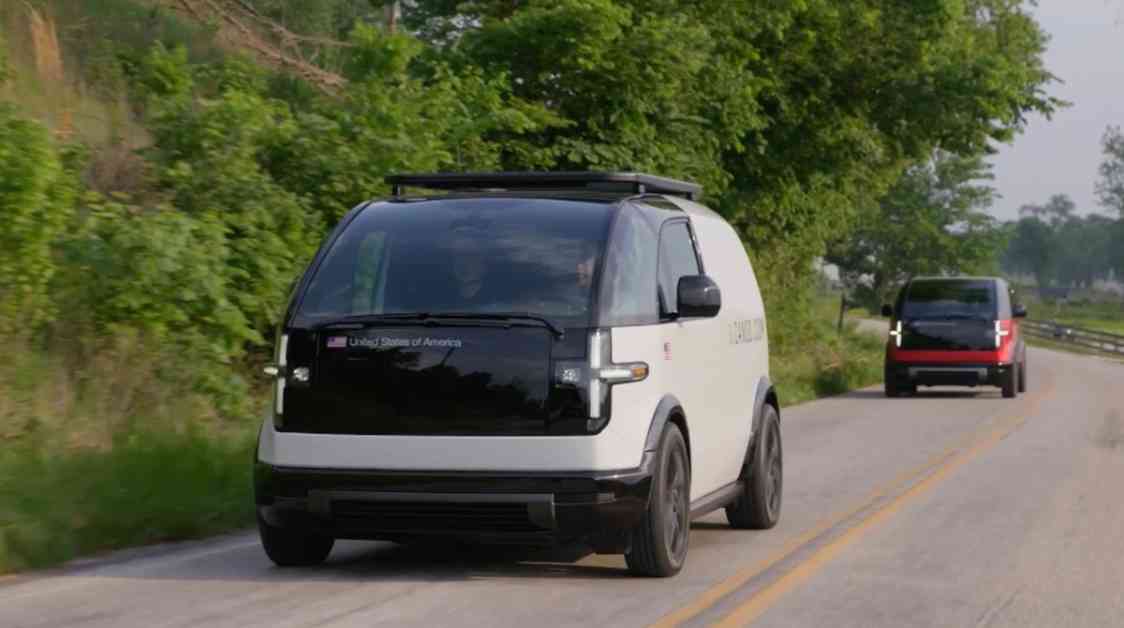Canoo EV Startup Declares Bankruptcy and Halts Operations
In a shocking turn of events, the seven-year-old electric vehicle startup Canoo has officially filed for bankruptcy, announcing that it will be “ceasing operations immediately.” The company, known for its innovative electric vans and ambitious plans, is currently liquidating its assets in a Chapter 7 proceeding in the Delaware Bankruptcy Court.
Financial Struggles and Unsuccessful Funding Attempts
Canoo’s downfall comes after a series of financial struggles, with the company citing unsuccessful attempts to secure funding from foreign sources of capital as a key factor. Additionally, Canoo highlighted its inability to secure funding from the U.S. Department of Energy’s Loan Program Office as a major setback, especially considering the agency’s recent generous lending practices.
In its bankruptcy filing, Canoo revealed that it owes money to fewer than 49 creditors, with liabilities ranging between $10 million and $50 million. Shockingly, the company claimed to have less than $50,000 in assets, painting a grim financial picture that ultimately led to its decision to declare bankruptcy.
Rapid Decline and Industry Fallout
The recent bankruptcy filing follows Canoo’s decision to furlough its remaining workers and idle its factory in Oklahoma just a few weeks ago. Throughout 2024, the company faced significant challenges in delivering its electric vans to customers and experienced a wave of executive departures. With only $700,000 in the bank by mid-November, Canoo’s financial troubles were becoming increasingly dire.
Canoo’s story is not an isolated incident in the electric vehicle industry. The company is the latest in a string of EV startups that have faced bankruptcy after merging with special purpose acquisition companies (SPACs) to expedite their path to going public. Names like Fisker, Lordstown Motors, Proterra, Lion Electric, and Arrival have all grappled with financial difficulties, signaling a broader trend within the industry.
Founder’s Vision and Changing Strategies
Founded in late 2017 as Evelozcity by a group of executives disillusioned with the drama surrounding another EV startup, Canoo initially set out to revolutionize the electric vehicle market with its modular platform. The company’s innovative approach attracted interest from tech giants like Apple, with discussions of potential investments and acquisitions swirling around the startup.
However, Canoo’s journey took unexpected turns after going public, particularly with the appointment of new leadership in Tony Aquila. Aquila, a serial entrepreneur, shifted Canoo’s focus towards commercial fleets and made strategic decisions regarding manufacturing and partnerships. Despite these efforts, Canoo’s financial woes persisted, ultimately leading to its bankruptcy filing.
As the electric vehicle industry continues to evolve, Canoo’s story serves as a cautionary tale of the challenges faced by startups in a rapidly changing market. The company’s rise and fall highlight the complexities of navigating the intersection of technology, finance, and innovation in the competitive world of electric vehicles.
Personal Story: As a reporter who has closely followed the developments in the transportation industry, including the rise and fall of companies like Canoo, I have witnessed firsthand the impact of financial struggles and strategic missteps on ambitious startups. The story of Canoo serves as a reminder of the fragility of success in the fast-paced world of electric vehicles, where innovation and funding are essential for survival.













